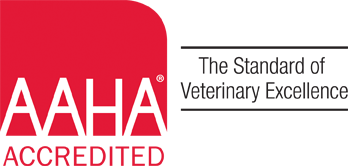Library
-
With Napoleonic tendencies and terrier-like spirit, Miniature Pinschers are cunning, playful, and depending on their breeding, utterly fearless. Adventurous types, buckle your seatbelts!
-
The jaunty beard, bushy eyebrows, and lively personality of the Miniature Schnauzer make it a fun and comical companion. They would rather get up and go than lie down and sleep, but the top priority of the Miniature Schnauzer is to be with the people he lives to please.
-
Mirtazapine is given by mouth or is applied to the skin and is used to treat weight loss in cats and is used off-label to treat inappetence, nausea, and vomiting in cats and dogs. Give as directed. The most common side effects include vocalization, restlessness, vomiting, incoordination, or trembling. Do not use it in pets that are allergic to it or that have recently used an MAOI. If a negative reaction occurs, call your veterinarian.
-
Miscarriage refers to the death of a fetus during pregnancy, with the most common cause being infection. It may also be caused by hormonal shifts or abnormalities. In many cases, there are no visible signs of miscarriage. If miscarriage is suspected, ultrasound is used to assess the pregnancy and determine whether the fetuses are alive. Finding a cause for the miscarriage, especially if that cause is a treatable condition, may improve outcomes in future pregnancies.
-
Miscarriage refers to the death of a fetus during pregnancy, with the most common cause being bacterial infection. Hormonal shifts or abnormalities may also cause miscarriages. In many cases, there are no visible signs of miscarriage. If miscarriage is suspected, ultrasound is used to assess the pregnancy and determine whether the fetuses are alive. Finding a cause for the miscarriage, especially if that cause is a treatable condition, may improve outcomes in future pregnancies.
-
Mites affecting pet hedgehogs, often called quill mites, are fairly common. Initially, an affected hedgehog may become itchy but if mites are left untreated, the clinical signs can become severe.
-
Mitral valve disease is often one of the earliest indicators of heart disease that could lead to heart failure. It is more common in small dogs than large breeds. This handout discusses mitral valve disease in dogs, a degeneration of the valve between the left atrium and left ventricle. The clinical signs, diagnosis, treatment, and the prognosis of this condition are outlined.
-
Most cats settle into a new home fairly easily. They crave familiarity, so it is best to bring along many familiar objects, such as litter boxes and favored furniture. Cats must be initially secured to prevent their escape, as they may attempt to return to a prior home and could be lost or injured along the way. It is best to introduce your cat to your new home gradually and with supervision.
-
Most dogs seem to take moving in stride, if they are with are with their familiar social group. Try to anticipate changes in the dog’s routine and introduce the changes prior to the move. Familiarize your dog with any novel noises that might be associated with the new home. If there will be new pets or people in the new home, arrange introductions ahead of time in a neutral location. When you arrive at your new home, give your dog plenty of time to adjust before trying to leave him alone.
-
Moxidectin and fluralaner are combined in one topical treatment for use in cats. Moxidectin topical is an avermectin antiparasitic that is used to prevent heartworms and treat intestinal parasites (hookworms and roundworms). Fluralaner is used to treat and prevent fleas and also kills black-legged ticks (deer ticks). Give as directed. Side effects are uncommon but may include hair loss at the application site, itching, vomiting, diarrhea, lethargy, excessive drooling, and dry skin. Moxidectin + fluralaner should not be used in pets that are hypersensitive or allergic to it. Do not use this medication in sick, debilitated, or underweight cats. Use caution in cats with known neurologic disorders. If you suspect an overdose or an adverse reaction to the medication, call your veterinary office immediately. If they are not available, follow their directions in contacting an emergency facility.








